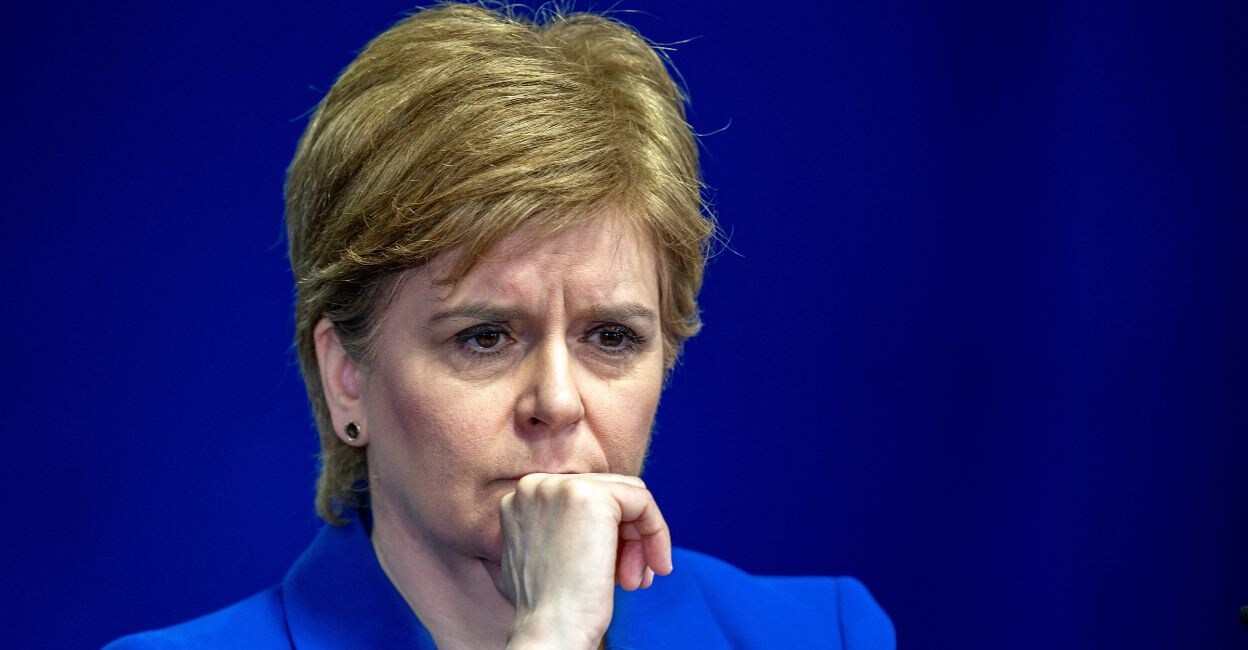Nicola Sturgeon steps down as Scottish First Minister

Mail This Article
London: Nicola Sturgeon resigned as Scottish first minister on Wednesday, saying her dominance over her party and the country was no longer the asset it once was in the fight for an independent Scotland.
In power since 2014, she said she had become too divisive - and too tired - to reach across the political divide, and she wanted to step away from the "brutality" of modern politics to focus on "Nicola Sturgeon the person".
Sturgeon became leader of the Scottish National Party in the wake of a 2014 independence referendum when Scotland voted 55 per cent to 45 per cent to remain part of the United Kingdom.
She steered her party through a series of resounding electoral victories and earned a reputation as the best political communicator in Britain. Those skills were evident during the COVID-19 pandemic when she avoided many of the mistakes made by politicians in Westminster.
But in recent months the path she was seeking for a new independence referendum was blocked by Britain's Supreme Court, and she became embroiled in a row over transgender rights that angered even some of her own supporters.
In a surprise announcement, she said she would stand down as first minister and leader of the SNP once a successor was found.
Sturgeon told a news conference in Edinburgh that while she believed there was majority backing for independence in Scotland, the SNP needed to solidify and grow that support.
"To achieve that, we must reach across the divide in Scottish politics. And my judgement now is that a new leader will be better able to do this. Someone about whom the mind of almost everyone in the country is not already made up for better or worse.

Echoing Jacinda Ardern's comment that she had "no more in the tank" when she quit as New Zealand's leader in January, Sturgeon said the brutality of modern politics took a toll and she could no longer commit to giving "every ounce of energy" that the job entailed.
The 52-year-old, who saw off four British prime ministers during her time in office, stands down with no obvious successor, and with the matter of independence unresolved.
Resounding success
She led her party to a thumping success in the United Kingdom's 2015 election, winning 56 of 59 seats in Scotland before she retained control over the devolved parliament at more recent elections.
But the SNP suffered a blow in November when the United Kingdom's top court ruled that her government could not hold a second referendum without approval from the British parliament.
Successive Conservative governments in London have said the 2014 referendum was a once-in-a-generation decision and should not be repeated so soon.
Her departure will have implications for the SNP, for the fight for independence and for the drive by Britain's opposition Labour Party to win enough seats in the United Kingdom to beat Sunak's Conservatives in an election expected next year.
Any hit to the SNP's electoral prospects could help Labour regain some of the seats lost to the nationalists in areas of Scotland that it once dominated.
Anthony Wells, head of European Political and Social Research at YouGov UK, told Reuters that Sturgeon's strength at the top of the SNP had contained internal disputes over the direction of the party, and helped to blunt criticism of its domestic record in areas such as health and education.
"Without somebody clearly with her hand on the tiller, I guess it will be a bit chaotic," he said.
According to polls, support for independence rose above 50 per cent in the wake of the Supreme Court defeat but has since slipped back.
Possible candidates to replace Sturgeon include Kate Forbes, the 32-year-old cabinet secretary for finance who was first elected as a lawmaker in 2016, and John Swinney, a 58-year-old deputy first minister.

